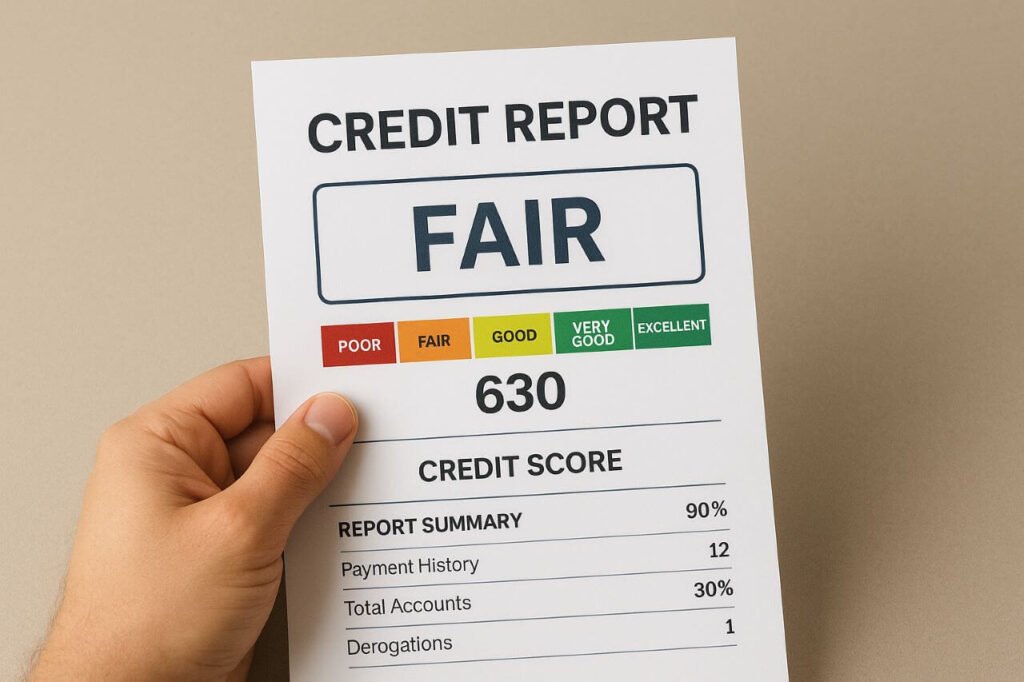Understanding credit scores might not feel exciting, but the impact they have on your life is real—and often huge. From getting a mortgage to renting an apartment, even sometimes when looking for a job or signing up for utilities, credit scores are often part of the equation.
Title
Learn what credit scores are, why they matter, and how to improve yours with tips to build credit, reduce debt, and boost financial health.
Think of your credit score as a kind of financial reputation. Just like people judge trustworthiness based on past behavior, lenders and other institutions use credit scores to judge whether you’ll likely follow through on repayment. That three-digit number can open doors to opportunities, or quietly close them if it’s lower than it should be.
The good news? Credit scores aren’t a mystery once you break them down. They’re built from clear factors, and with a bit of knowledge and consistency, you can take control of yours. Whether you want to improve your credit score, qualify for lower interest rates, or simply understand how lenders view you, learning the basics can make a big difference. This article will break down what credit scores are, how they’re calculated, what the numbers mean, and why having a good credit score can save you money, opportunity, and stress. Think of it as your friendly guide to mastering a big piece of financial health.
What Is a Credit Score?
A credit score is a three-digit number that lenders, financial institutions, and others use to evaluate how likely you are to repay borrowed money. It reflects your creditworthiness: your past behavior with credit, and how risky you appear to lenders. In the U.S., the most widely-used score ranges are from 300 to 850 (myfico.com).
You can think of it as a shorthand summary of your financial habits. While your credit report holds the full story—every loan, every payment, every account—your score condenses that story into a simple number. The higher the number, the more confident lenders feel that you’re a safe bet to lend money to. Having a good credit score can mean lower interest rates, better loan approvals, and more financial freedom, while a poor score can cost you thousands of dollars over time.
There are two major scoring models most people will deal with: FICO® and VantageScore®. While they use similar kinds of data, they may weigh things differently (for example, how important payment history is vs. credit utilization). Because of the different models, it’s common for someone’s FICO and VantageScore to differ by a few points (myfico.com).
Although it might sound intimidating, remember: a credit score is not a judgment of your character. It’s simply a tool lenders use, and one that you can actively improve. By focusing on strategies to raise your credit score—such as making on-time payments and lowering credit card balances—you can steadily build financial strength over time.
How Scores Are Calculated

Credit scores are built from several components. The exact formula depends on which model is used, and lenders may also have proprietary variations, but here are the core factors most scoring models include, along with rough weights (in many common FICO models):
- Payment history (≈ 35%) — whether you’ve paid past credit obligations on time. Missed or late payments hurt your score.
- Amounts owed (credit utilization) (≈ 30%) — how much of your available credit you’re using. If your credit cards are close to maxed out, that lowers your score.
- Length of credit history (≈ 15%) — longer credit histories generally help, because more data gives lenders more confidence.
- Credit mix (≈ 10%) — different kinds of credit (e.g. credit cards, installment loans, a mortgage) show you can manage various types of debt.
- New credit / recent credit inquiries (≈ 10%) — opening many new accounts or having many recent inquiries can be seen as risky.
These weights are estimates based on widely available FICO model information. VantageScore is similar but not identical. Also, negative marks like bankruptcies, foreclosures, or loans sent to collections can drop your score sharply.
Average Scores: Where Americans Stand & What “Good” Looks Like
Having a frame of reference helps a lot. If you know where the average is, you can see how you compare and what you might need to do to improve.
- The average U.S. credit score is about 715 under many commonly used scales (FICO).
- Scores tend to increase with age: younger people (e.g. 18–25) often have lower scores simply because they have shorter credit histories; older people generally have higher scores.
- The distribution of score categories is roughly as follows (using FICO Score 8 or similar models):
- Super-prime / prime (roughly 720+): these are very good scores that qualify for the most competitive interest rates.
- Near-prime (around 620–719): often okay, but terms may be less favorable.
- Subprime / deep subprime (below ~620, especially under 580): higher risk in lenders’ eyes; borrowing can be more expensive or difficult.
- Only about 23% of U.S. consumers have FICO® scores of 800 or better, which is considered “exceptional.” (Experian.com)
So, if your score is in 700–740, you’re generally doing well. If it’s lower, don’t panic — there are actionable steps to raise it. If it’s higher, you’re in a great position.
Why Credit Scores Matter — More Than You Might Think

Credit scores don’t just affect loan approvals. Their influence shows up in many aspects of life, sometimes subtly. Here’s how having a good credit score (or a poor one) can matter:
1. Interest Rates and Loan Terms
Perhaps the most immediate impact is how much you’ll pay in interest. Two people who are identical except for credit score often pay very different rates for mortgages, car loans, personal loans, or credit cards. A few extra percentage points can add up to thousands of extra dollars over the lifetime of a loan. Lower credit score = higher interest rates, more fees, more restrictive credit limits.
2. Mortgage and Homeownership
To get good mortgage rates, lenders look closely at credit scores. A higher score can mean qualifying for better fixed-rate mortgages, lower down payments, or avoiding private mortgage insurance. In contrast, a lower score might still get you a mortgage, but at significantly poorer terms. Over decades, those differences can be massive.
3. Auto Loans, Insurance, Utilities, Renting
- Auto loans: same as mortgages — your credit score helps determine what rate a lender will offer.
- Insurance: In many states, insurance companies use credit-based insurance scores to help set premiums; people with lower scores often pay more. For example, people with low credit scores sometimes see insurance premiums many percentage points higher than someone with excellent credit.
- Renting: Landlords often do credit checks; a better score can make it easier to get approved, avoid large security deposits, or secure better lease terms.
- Utilities, phone, internet: Some service providers check credit or require deposits if your credit is weak.
4. Opportunity Costs & Life Goals
A good credit score can unlock opportunities:
- Easier access to loans and better repayment terms – this means you can invest in things like education, business, or that starter home without taking on crushing costs.
- Lower monthly payments – more disposable income and flexibility.
- Better financial resilience: when emergencies happen (car repairs, unexpected $ bills), having good credit gives more options.
Meanwhile, a low credit score can limit options, cost more, and sometimes prevent you from doing things you might take for granted.
Common Myths & Misconceptions
To manage credit well, it helps to know what’s true — and what’s just a misconception. Here are a few common myths with the real story.
- “Checking my credit score hurts it.”
Not true — checking your own credit report or score (a “soft inquiry”) does not lower your score. Only certain hard inquiries (like applying for a new credit card or loan) can have a small, temporary impact. - “Closing old credit cards improves my score.”
Actually, closing older accounts may hurt your score by shortening your credit history or increasing your utilization ratio. - “Carrying a small balance on cards helps more than paying off monthly.”
No — it’s almost always better to pay off in full if possible. Usually the benefits of avoiding interest charges and showing positive payment history far outweigh any perceived scoring benefit of having some balance. - “Credit scores reflect my income.”
Not directly. Income isn’t part of the score—though it matters to lenders separately when assessing whether you can afford payment. The score reflects your debt, payment reliability, utilization, history, and recent activity.
How to Improve Your Credit Score — A Roadmap

If you want to raise your credit score, here are solid, practical steps to take. They take time and consistency, but they work.
1. Pay On Time, Every Time
Payment history is the biggest factor. Even one or two missed payments can drag your score down significantly. Set up reminders or auto-pay to avoid missing due dates. If you’re late, get current and stay current.
2. Keep Credit Utilization Low
Try to use less than about 30% of your available credit (some experts suggest even lower, e.g. 10–20%) across all revolving accounts. For example, if a credit card has a $10,000 limit, carrying a $2,000–$3,000 balance is much safer than $8,000.
👉 High balances holding your credit score back? The quickest way to lower credit utilization is to pay off debt strategically. Our post 10 Smart Strategies to Pay Off Credit Card Debt Faster walks you through simple, proven methods to cut balances and see results sooner.
3. Maintain Long and Healthy Credit History
Keep older credit lines open as long as they’re in good standing (if there are no annual fees that make it too expensive). Length of credit history matters. Also, avoid opening too many new accounts all at once.
4. Mix of Credit Types (When It Makes Sense)
If you have only credit cards, a car loan or education loan can help diversify. But don’t take on a loan you don’t need just for the sake of credit mix — the costs could outweigh the benefit.
5. Be Strategic About New Credit & Applications
Every time you apply for a loan or credit card, there’s often a “hard inquiry,” which can slightly damage your score. Shop around smartly (e.g. multiple auto loan quotes within a short window might count as one inquiry in some scoring models).
6. Check Reports & Correct Errors
Get your credit reports from the three credit bureaus (Experian, Equifax, TransUnion); you’re entitled to one free report per bureau per year in the U.S. Use them to spot errors (wrong addresses, incorrect late payments, identity theft). Dispute inaccuracies. They can drag a score down unfairly.
Risks of Not Paying Attention
If credit scores are ignored or neglected, the consequences can stack up. Below are some of the risks.
- Higher borrowing costs: Higher interest rates mean more money out of your pocket long-term.
- Loan denials or stricter terms: Worse scores mean lenders are more likely to reject your loan applications or require larger down payments or collateral.
- Barriers to housing or rental approval: Apartments with stricter credit requirements may be inaccessible or come with higher deposits.
- Higher insurance premiums or deposits: As mentioned, many insurers and utility companies use credit as one factor. Poor credit can cost you extra.
- Emotional / psychological cost: Bad credit can cause stress, limit choices, or force you into less favorable financial paths.
Interesting Recent Data & Trends

To help you understand where the credit score landscape is right now, here are some recent statistics and trends:
- As of 2024, the average U.S. credit score is about 715. (Experian.com)
- Approximately 23% of consumers have FICO® scores of 800 or above, which is considered “exceptional.” (Experian.com)
- Credit scores tend to rise with age; younger people (e.g. 18-25 years old) have averages closer to 680, whereas older groups often have scores in the mid-700s.
These numbers show two things: first, that many people are doing fine with credit, but second, that there’s real room for improvement — especially among younger people, people just establishing credit, or those recovering from financial setbacks.
Putting It All Together: Your Action Plan
Here’s a suggested plan to take charge of your credit score, with small steps that build up:
- Find out where you stand. Get copies of your credit reports (free once a year from each bureau via AnnualCreditReport.com). Also, see both your FICO and VantageScore if possible.
- Pay everything you can on time. If necessary, prioritize payments. Even if you can’t pay everything, paying more than the minimum and being current on payments helps.
- Manage balances. Lower your credit usage. If possible, pay off or transfer balances to cards with better rates.
- Don’t open too many new accounts. Be selective about when to apply for credit.
- Keep old accounts. Don’t close old cards just because you don’t use them often. Their long-standing history helps.
- Watch your credit report for errors or fraud. Dispute anything inaccurate.
- Be patient. Improving your score doesn’t happen overnight. But with disciplined habits, changes can show in months, and big improvements over a year or more.
Final Thoughts

Credit scores are more than just three numbers. They’re dynamic reflections of how you’ve handled money in the past — but more importantly, they affect what you’ll pay, what options are open to you, and how financially flexible your future can be.
The good news is that they’re mostly under your control: through habits, awareness, and smart decisions. Your score doesn’t define you, and even if it’s low today, it can improve steadily with time and consistent effort. Every on-time payment, every reduction in credit card balances, and every avoided late fee is a step in the right direction to build credit and establish long-term financial stability.
If there’s one takeaway: even small improvements in how you manage debt, make payments, or reduce credit utilization can make a meaningful difference. And that difference adds up — not just in dollars and cents, but in peace of mind and opportunity. A stronger score can help you unlock lower interest rates, qualify for better housing, and feel confident about your financial resilience.
So don’t think of your credit score as a roadblock — think of it as a tool you can shape. With patience and consistent good habits, you can improve your credit score, strengthen your financial reputation, and turn it into one of your biggest financial assets.
Frequently Asked Questions About Credit Scores
1. What is considered a good credit score?
A good credit score is typically considered 670 or higher on the FICO® scale, though 740 and above is generally seen as very good, and 800+ is excellent. The higher your score, the more likely you are to qualify for the best interest rates and loan terms.
2. How often should I check my credit score?
It’s a good idea to check your credit score at least a few times a year. Many banks and credit card companies now offer free monthly credit score updates. Checking your own score is a “soft inquiry,” so it will not hurt your credit.
3. What’s the fastest way to improve my credit score?
While there’s no overnight fix, some of the quickest ways to raise your credit score include paying down high credit card balances, making all payments on time, and disputing any errors on your credit report. Lowering your credit utilization ratio can sometimes boost your score in as little as one billing cycle.
👉 Want step-by-step help lowering your balances? Check out our full guide: 10 Smart Strategies to Pay Off Credit Card Debt Faster. It’s packed with practical tips to pay down debt more efficiently and give your credit score the boost it needs.
4. Do student loans or medical bills affect my credit score?
Yes. Student loans are installment loans and are reported to the credit bureaus, so your payment history directly affects your score. Medical bills usually don’t appear on your credit report unless they are sent to collections, which can negatively impact your score.
5. Can I build credit without a credit card?
Absolutely. While credit cards are a common way to build credit, other tools exist. Installment loans (like student, auto, or personal loans) also report to credit bureaus. You can also use secured credit cards or credit-builder loans designed specifically to help establish or build credit history.
6. How long do negative marks stay on my credit report?
Most negative information, such as late payments or accounts in collections, stays on your credit report for seven years. Bankruptcies can remain for up to ten years. The impact on your score lessens over time, especially if you’re building positive credit habits.
7. Does my income affect my credit score?
No — your income is not part of your credit score. However, lenders often consider income separately to determine whether you can handle new debt. Your credit score is based solely on factors like payment history, credit utilization, length of credit history, and account types.
8. Will closing a credit card hurt my credit score?
Closing a card can hurt your score if it lowers your overall available credit (increasing your utilization ratio) or shortens your credit history. Unless the card has a high annual fee, many experts recommend keeping older accounts open to help maintain your score.
9. Do hard inquiries always hurt my score?
Hard inquiries — like when you apply for a loan or credit card — may lower your score slightly, usually by a few points. However, multiple inquiries for the same type of loan (like mortgage shopping) within a short time frame often count as one inquiry.
10. How long does it take to build good credit from scratch?
It typically takes at least six months of credit activity to generate a score. To reach a “good” credit score, it can take several years of consistent, positive credit use, but building smart habits from the start helps you get there faster.


I just wonder if your credit score matters much if you aren’t purchasing a house or car?
Your credit score is a big factor when it comes to house or car loans, but there are many other things it can also affect. Such as: renting opportunities, insurance premiums, credit card approvals/limits, and any other type of loan (personal, student, business loans). In some cases, it may even affect utility and cell phone plans, employment opportunities, and certain professional licensing.
Wow! I guess I’m above the national average in my credit score then. Who knew lol! It definitely is a good idea to check your credit score frequently. Discover allows you to check your FICO credit score whenever you want on its app.
That’s great! It’s always a good idea to check your credit score. That’s good to know Discover lets you check for free. Credit Karma is also a useful service to use for checking your score.
I haven’t checked my credit score in a long time but I’m sure it’s in the 800 range. My ex husband’s credit score was like 900. The guy at the financial place who pulled the report said it was the highest credit score he had ever seen!
Wow! That’s incredible. A score in the 900s is unheard of. The 800 range is still also amazing. Great work!
This was so informative and I will use now and save for future use!
I am excited to share with my
“ senior “ friends as we are always needing to improve our credit even at our age.
That’s amazing! I’m glad you found it helpful. Best of luck to you and your friends on your credit score journey.
I wish something was out here like this when I bought my car! I thought paying cash for everything was good , but not so. I needed to show credit score to get a loan and I had none . So this is very useful!
Very true! Most of the time people talk about debt in a negative light, but it’s actually essential in order to obtain a credit score. Starting with a credit card is a great way to build credit for the first time as long as you are responsible. So glad you found this helpful.
Great article! this is very helpful in learning how to build credit
Thank you! I’m glad it can help!
Lots of great information to know. This was vey helpful.
That’s great to hear. Hope it helps. Thank you!